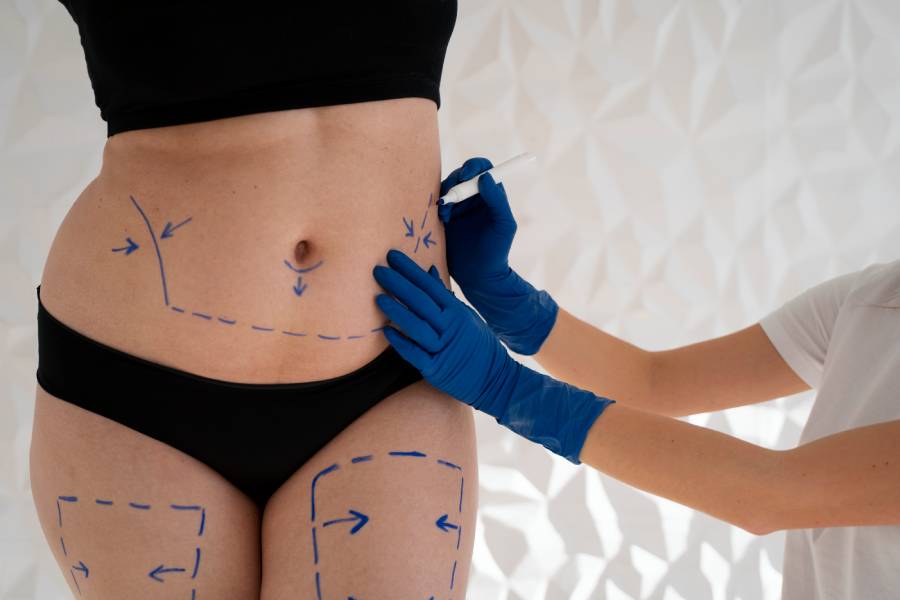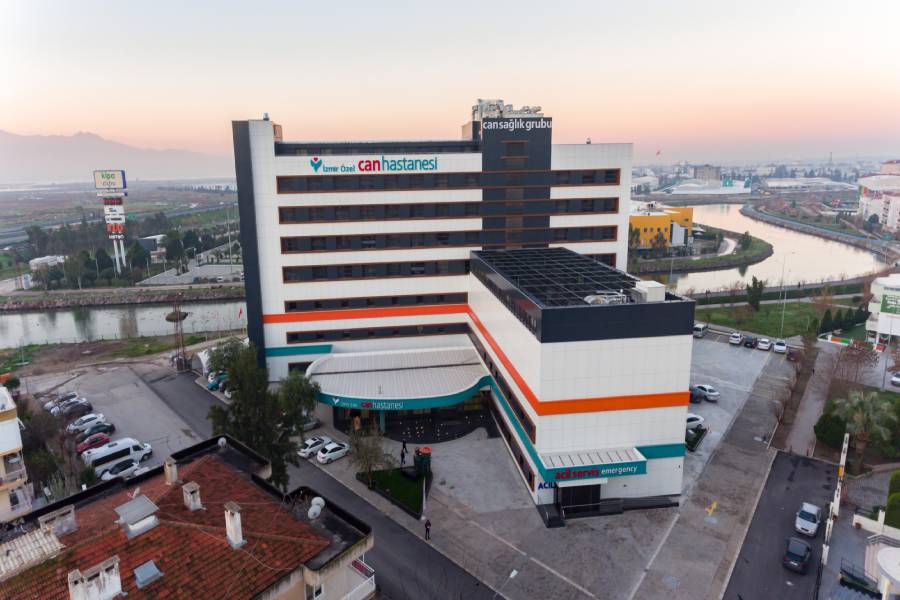Can You Get Pregnant After a Tummy Tuck?
Categorised in: HEALTH GUIDE
Published Date:

A tummy tuck, or abdominoplasty, is a sought-after cosmetic surgery. It aims to flatten and shape the abdominal area. Many women choose it to regain their pre-pregnancy look or to tackle excess skin and fat from significant weight loss. If you’re eyeing a tummy tuck in Turkey, at Can Hospital in Izmir, you might wonder about pregnancy post-surgery.
Though a tummy tuck can significantly improve your abdomen’s appearance, it’s crucial to grasp the pregnancy’s impact on the surgery’s outcome. Women often worry about safely getting pregnant after the procedure. They also fret about how pregnancy might alter their surgery’s results.
What is Tummy Tuck Surgery?
A tummy tuck, also known as abdominoplasty, reshapes the abdominal area. It removes excess skin and fat, tightening the muscles. It’s popular among those who’ve lost a lot of weight or have had children, as these changes can stretch the skin and muscles.
The procedure involves a skilled surgeon making an incision from hip to hip, just above the pubic area. The incision’s length and shape depend on the surgery’s extent and the patient’s needs. Through this incision, the surgeon separates the skin from the muscles, gaining access to them.
Next, the surgeon tightens the muscles, creating a firmer abdomen. This is done by suturing the muscles together, pulling them closer to the body’s midline. Tightening the muscles not only improves the abdomen’s shape but also strengthens the core and posture. After tightening the muscles, the surgeon focuses on the excess skin. The skin is pulled down, and any excess is trimmed. The remaining skin is draped over the muscles and sutured, creating a smoother abdomen. Sometimes, the belly button is repositioned for a natural look.
It’s crucial to understand that a tummy tuck isn’t for weight loss but for body contouring. It’s best for those close to their ideal weight but have excess skin and weak muscles. Recovery can take weeks, requiring rest and avoiding strenuous activities to heal properly.
Tummy Tuck and Pregnancy: Timing Considerations
When planning a tummy tuck, it’s vital to think about your future pregnancy plans. Becoming pregnant after a tummy tuck is possible, but the timing affects your results’ longevity and appearance. It’s often advised to wait until you’ve completed your family before getting a tummy tuck.
If you’re thinking about a tummy tuck but also want children, talking to your surgeon is crucial. They can help you understand the risks and benefits of the procedure before or after pregnancy. Most surgeons suggest waiting until you’ve finished having children for the best results. This ensures your surgery’s outcomes aren’t affected by pregnancy and childbirth.
For those who’ve had a tummy tuck and are planning a pregnancy, waiting for your body to fully recover is essential. Most surgeons recommend waiting at least six months to a year before trying to conceive. This allows your body to heal and your abdominal muscles and skin to regain strength and elasticity.
Proper pregnancy planning is key to maintaining your tummy tuck results. Waiting for your body to fully recover and ideally postponing pregnancy until after the procedure is best. If you do get pregnant after a tummy tuck, working closely with your obstetrician and plastic surgeon is vital. This ensures you can monitor your progress and address any concerns that may arise.

Effects of Pregnancy on Tummy Tuck Results
It’s possible to get pregnant after a tummy tuck, but pregnancy can greatly affect the surgery’s results. The changes in the abdomen during pregnancy can alter the look of the tummy tuck. This might reduce the aesthetic improvements made by the procedure.
The growing uterus stretches the abdominal skin to fit the baby. This stretching can cause new stretch marks and reduce skin elasticity. The rectus abdominis muscles, tightened during the tummy tuck, may also separate again. This separation, known as diastasis recti, can make the abdomen bulge or protrude.
After pregnancy and childbirth, the tummy tuck results may change. The skin may look looser or saggy, and the muscles can separate again. This can make the abdomen less toned and less flat. While some women might see their bodies return to pre-pregnancy tummy tuck results, others may experience more lasting changes.
Women thinking about pregnancy after a tummy tuck should have realistic expectations about the impact on their results. Talking to a qualified plastic surgeon can help them understand the timing of their tummy tuck and family planning. Some women might choose to wait until they’ve finished having children to avoid compromising their results.
Risks and Complications of Pregnancy After Tummy Tuck
A tummy tuck, or abdominoplasty, is generally safe. However, it’s crucial to understand the potential risks and complications when becoming pregnant after the surgery. The surgery itself doesn’t usually affect fertility or the ability to carry a pregnancy to term. Yet, women who have had a tummy tuck may face a slightly higher risk of certain pregnancy complications.
One common concern for women pregnant after a tummy tuck is increased abdominal pain or discomfort. The growing foetus puts additional pressure on the abdominal muscles and skin. This can cause discomfort or pain, especially in the later stages of pregnancy when the abdomen expands significantly.
Pregnant women who have had a tummy tuck may also be at a higher risk for other complications. These can include wound separation, infection, or impaired healing of the incision sites. The stretching of the abdominal skin and muscles during pregnancy can put additional stress on the surgical scars, potentially leading to complications.
It’s essential for women considering pregnancy after a tummy tuck to consult with a qualified healthcare provider. Obstetricians and surgeons can work together to develop a personalised care plan. This plan will take into account the patient’s medical history, surgical details, and pregnancy goals. By closely monitoring the pregnancy and addressing any complications, healthcare professionals can help minimise risks. This ensures a safe and healthy pregnancy for both mother and baby.
Consulting with Your Surgeon and Obstetrician
Considering pregnancy after a tummy tuck? It’s vital to talk to both your plastic surgeon and obstetrician. Before the surgery, share your pregnancy plans with your surgeon. They’ll offer tailored advice, considering your age, health, and surgery extent. Your surgeon can guide you on the best time to conceive post-surgery. They might suggest waiting six months to a year. This allows your body to heal and your results to settle. During pregnancy, close monitoring by your obstetrician is crucial. They’ll provide medical guidance, taking your tummy tuck into account. Your obstetrician will craft a care plan tailored to your needs and risks.
Collaborating with your surgeon and obstetrician ensures a safe path for your tummy tuck and pregnancy. With careful planning and attention, a healthy pregnancy and preserved tummy tuck results are achievable.
https://www.ncbi.nlm.nih.gov/pmc/articles/PMC10240990
https://my.clevelandclinic.org/health/procedures/11017-tummy-tuck
Related Posts

Why British Citizens Choose Turkey for Health Services?
British citizens are increasingly opting for Turkey when seeking medical treatments due to a combination of superior healthcare services, affordability, […]

Psychological Effects of Genital Aesthetics on Body Image
In a society increasingly focused on physical perfection, the realm of genital aesthetics has surfaced as an area of both […]

Common Concerns About Genital Plastic Surgery
Genital plastic surgery, a burgeoning field within the realm of cosmetic enhancements, has witnessed a notable surge in popularity. Procedures […]

In which cases is labiaplasty necessary?
Labiaplasty, a procedure that has recently garnered significant attention, involves the surgical reduction of the labia minora. This operation, also […]

Healthy Recovery Process After Genital Aesthetic Surgery
Day Things To Do Things to Avoid 1-7 Days – Bed rest – Using medications recommended by the doctor – […]